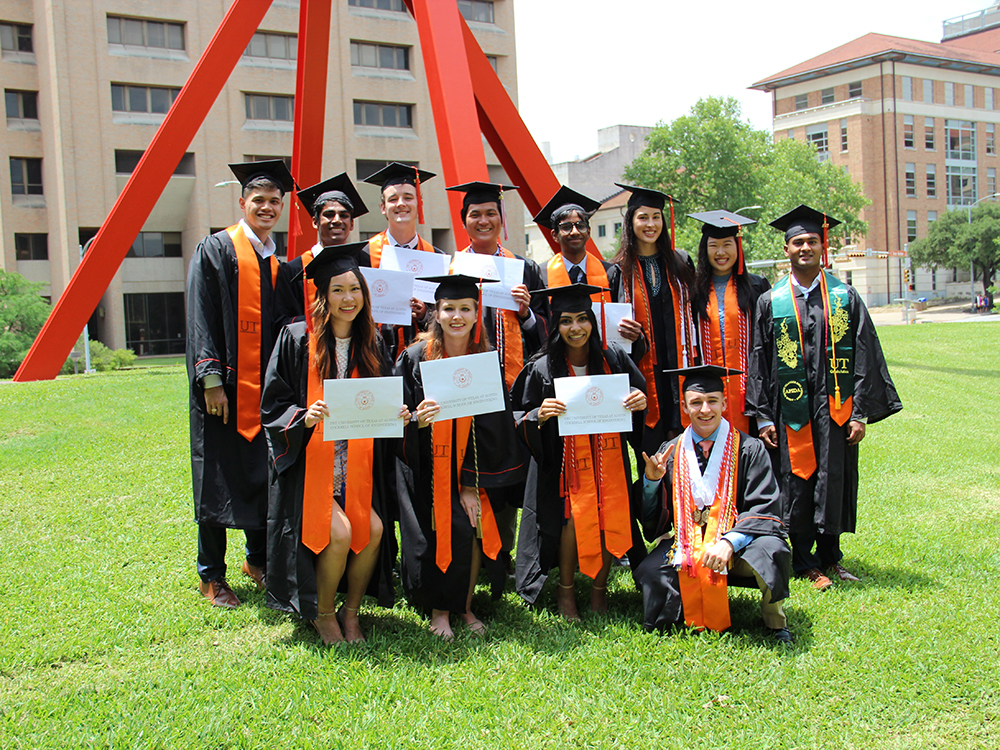Meet two undergraduate and two Ph.D. students graduating May 2022. Find out what they loved about the Texas ChE program, where they're headed next and what recommendations they have for new students.
Ella Jiang
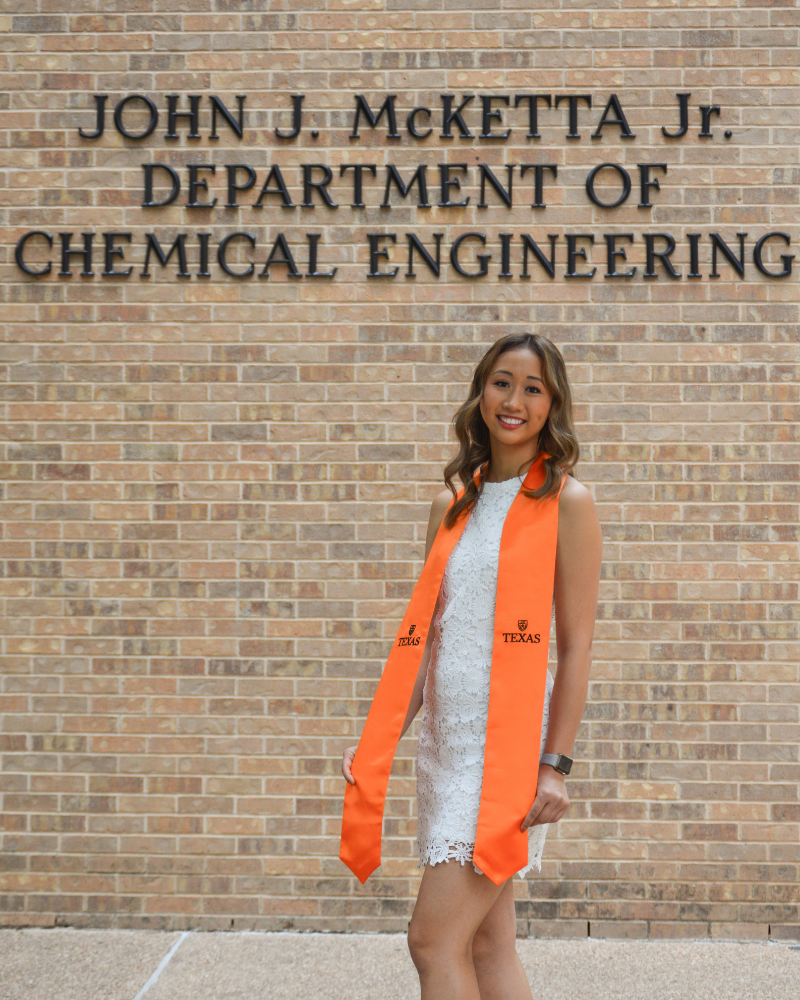
Q: Tell us about your time here, how did you get involved at UT?
Through my time at UT, I primarily involved myself in three organizations: AIChE, SWE, and Club Volleyball. I joined AIChE and SWE my freshman year to meet other peers within engineering and made so many lifelong friends and memories from these organizations. I also held various leadership positions to give back to the organizations and help others navigate the Cockrell School of Engineerings. My sophomore year, I tried out for the club volleyball team because I missed the competition and the community of volleyball. Within the Chemical Engineering Department, I served as a tutor and grader for various classes.
Q: What are your plans after graduation?
After graduation, I plan to go to Europe with some friends and relax while traveling. At the end of June, I will begin a full time process controls position at INEOS.
Q: What was your most memorable moment at UT?
I've had a lot of memorable moments in the CPE, especially the computer labs. One of my favorite moments from this year was seeing everyone back on campus during finals last fall when I was working on my final plant paper. I really missed seeing everyone around during COVID.
Q: What was your most challenging ChE project or assignment and what did you learn from it?
Dr. Edison's Reactor final was the most difficult ChE assignment I've ever done and I learned that some math is really really hard. I prepared a lot for that exam, yet had no idea what I was doing for most of it.
Jacob Sass,
Ganeson Research Group
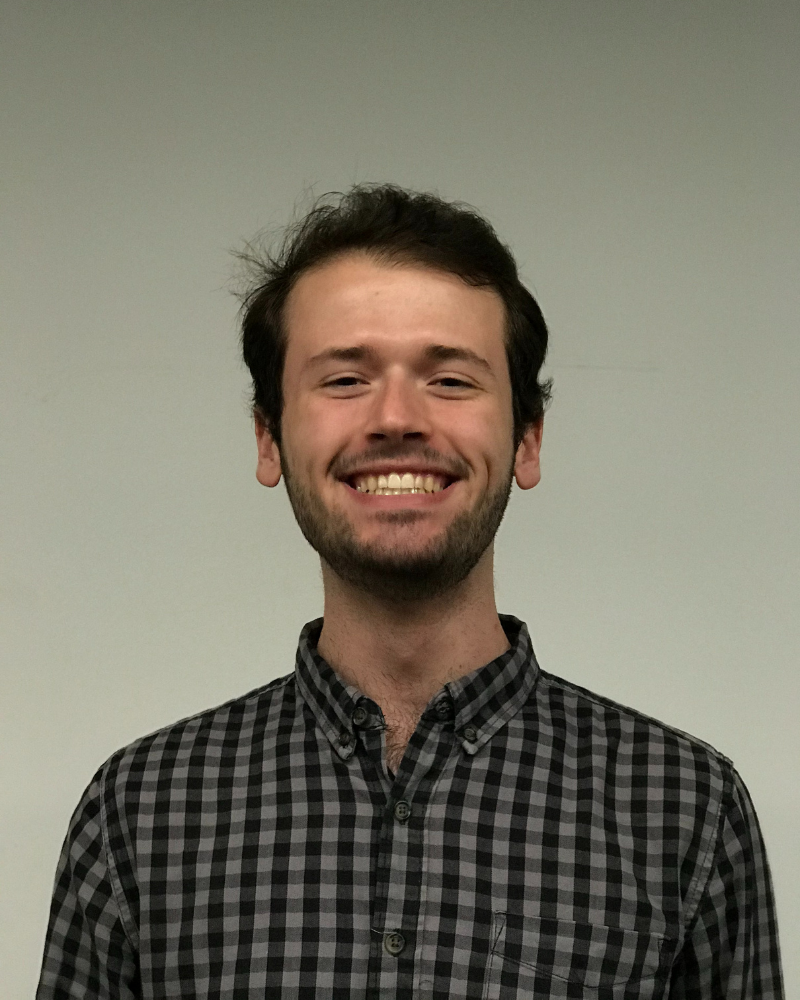
Q: Tell us about your time here, how did you get involved at UT?
I got involved in UT by starting off in the Society for Freshman Engineers. It was a great way to make friends outside and inside ChemE and start off my time at UT. I became heavily involved in research in October of my Freshman year in the Page Group. I did research over multiple winters and summers with Zak and learned a lot about how to perform research and start a lab group. During COVID, I joined Dr. Ganesan's research group to learn what computational research looks like and apply my knowledge in a different way than what I was familiar with. While I was mostly involved in research, I also spent a lot of time in OXE with my friends studying and working in the OXE room. I also enjoyed TAing for multiple classes in the department.
Q: Why would you encourage incoming freshmen to choose chemical engineering?
I would encourage freshmen to pursue the chemical engineering degree because the fundamental concepts behind transport and balances are widely applicable. I have friends going into any industry they want. If you work towards where you want to go with a chemical engineering degree, you can get there.
Q: What was your most memorable moment at UT?
This is a tough one for me. I had a lot of small moments that were enjoyable but nothing stands out explicitly. It might be getting to spend time with the educators that cared for my learning and growth overall.
Q: What was your most challenging ChE project or assignment and what did you learn from it?
My most difficult project was the senior design project. I learned that putting trust in people that you are assigned to work with is the most important team dynamic. Once that is established, the project moves quite quickly and is put together nicely.
Kanan Patel
Hildebrandt Ruiz Group
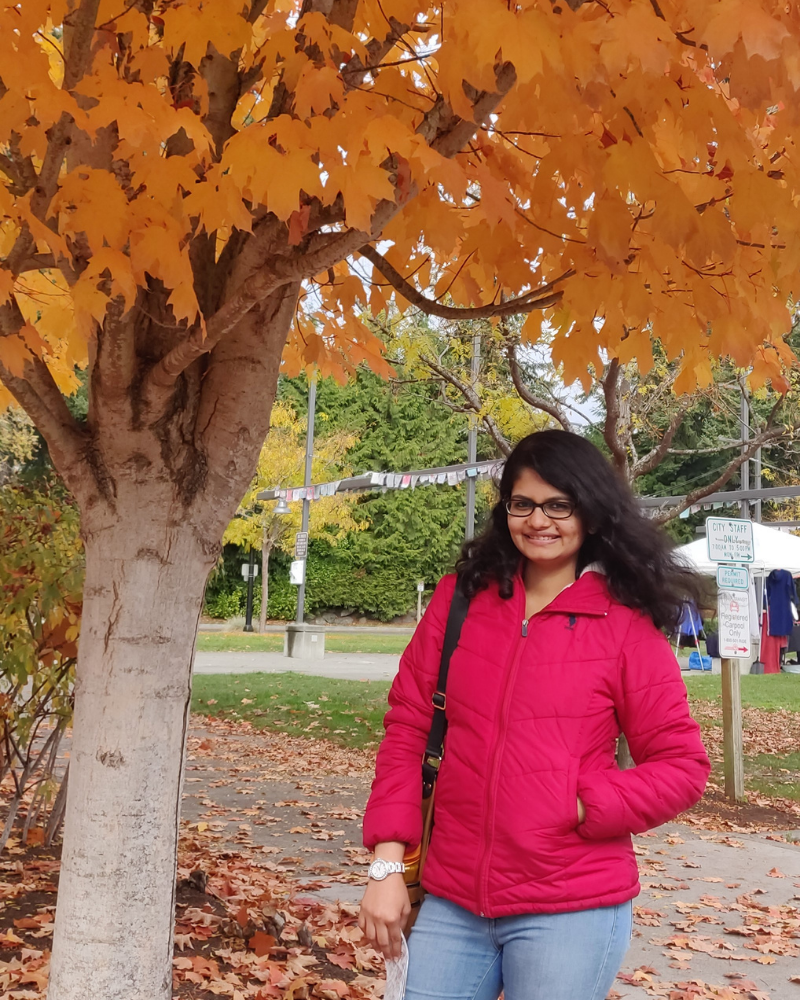
Q: Tell us about your time here, how did you get involved at UT?
I joined in the fall of 2017 and worked in the Hildebrandt Ruiz group at the Pickle Research Centre. My PhD thesis was focused on understanding the factors influencing ambient air quality in different parts of the world, by combining ambient aerosol mass spectrometry measurements with receptor modeling, robust statistical analysis, and machine learning tools. During my PhD, I interned with SSAI/NASA, the Environmental Defense Fund, and the Houston Health Department on advancing our understanding of ambient air quality in the U.S. I was part of the organizing committee of the Graduate and Industry Networking (GAIN) in 2020 and also participated in the event in 2021. In 2021-2022, I was awarded the Graduate Continuing Fellowship by the Graduate School, which helped fund the last year of my research.
Q: What are your plans after graduation?
I am looking forward to travelling for a few weeks before joining Schlumberger’s Emission Management team as an Emissions Consultant.
Q: What was your most memorable moment at UT?
I think it has to be when I was awarded as one of the top presenters at the department 1st – 3rd year seminar series because it was a testament to my science communication skills.
Q: What was your most challenging ChE project or assignment and what did you learn from it?
My first field measurement campaign in June 2018 was really challenging as I was a first year PhD student and was still getting familiar with my research field and air quality measurement instrumentation. I was able to complete the field campaign and collect interesting data through the help of my lab mates, a supportive PhD advisor and a lot of perseverance.
Julia Lamb
Manthiram Group
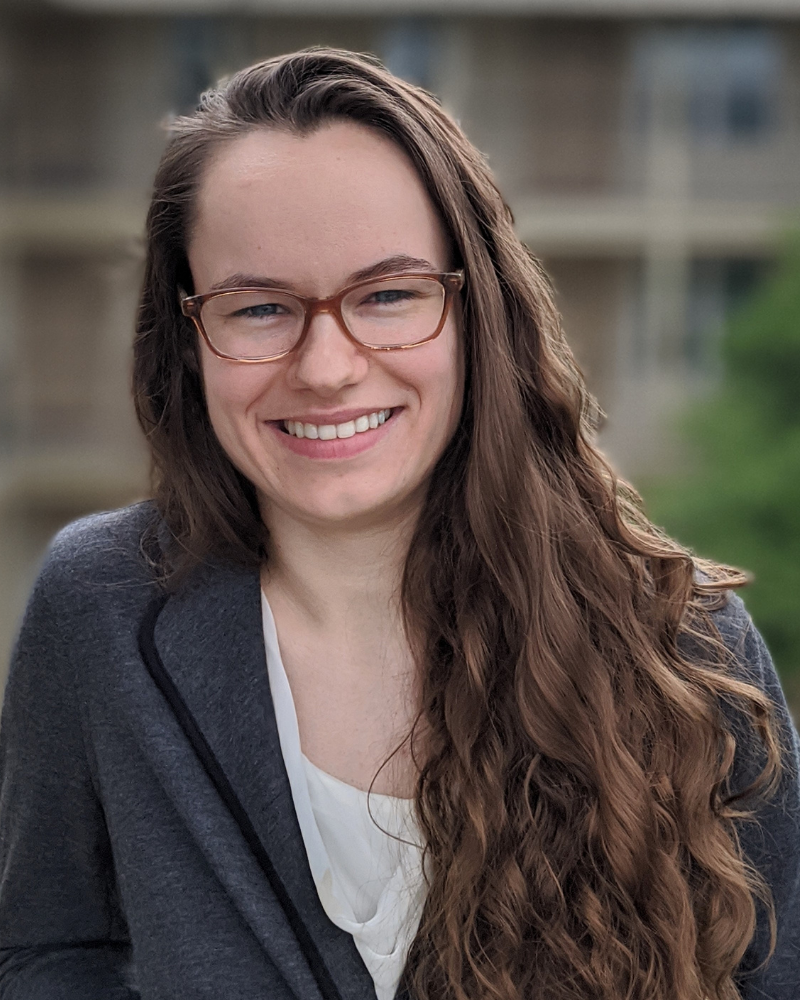
Q: Tell us about your time here, how did you get involved at UT?
I decided to come to UT for the incredible wealth of electrochemistry/battery knowledge. I ended up getting involved in quite a few events and student organizations, eventually becoming the president of the Graduate Engineering Council (GEC). Both the GEC and the undergraduate version (SEC) offer great opportunities for directly helping your fellow students and for developing leadership skills.
Q: Why would you encourage incoming freshmen to choose chemical engineering?
Chemical engineering helps explain much of our world. In particular, understanding how heat transfers and how fluids flow is necessary for most manufacturing applications. On a personal note, it has also helped me settle heated debates - such as "should you close the fridge door when putting away groceries?" (shockingly, the answer is no).
Q: What was your most memorable moment at UT?
It is impossible to pick one moment in particular, but looking back, I really loved spending my afternoons in the CPE "dungeon" (basement room) with the other CHE first year graduate students. We all helped each other understand the homework and study for tests; it was a collaborative learning environment that allowed me to deeply understand the problems. I also made life-long friends from that first year, and met my current partner.
Q: What was your most challenging ChE project or assignment and what did you learn from it?
My most challenging ChE projects in undergrad and grad school were always the large, open-ended projects. They always forced me to learn how to learn. Instead of knowing the answers to a problem were in a single textbook or a quick search away, I had to learn how to find the right information amongst infinite options.

